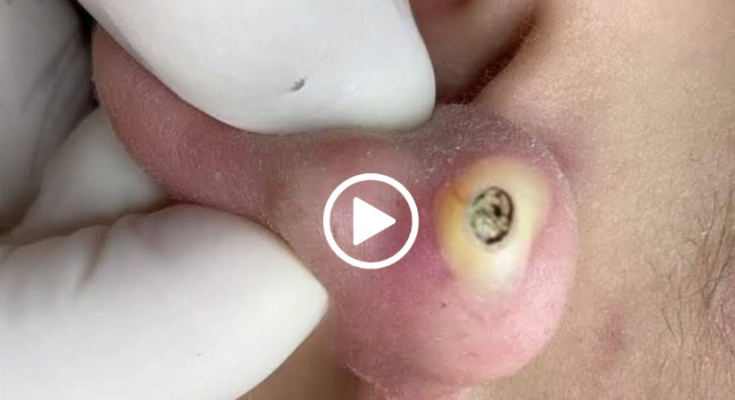Acne—long considered a simple teenage concern—has now emerged as a global public health issue, affecting people of all ages, genders, and ethnicities. While it may seem like a minor cosmetic condition to some, the truth is much deeper. Acne can lead to long-lasting scars, both physical and emotional, and its effects are being felt more widely than ever before.
Recent studies show that acne now affects an estimated 9.4% of the global population, making it the eighth most prevalent disease worldwide. From hormonal teenagers to stressed-out adults, more and more people are battling this chronic skin condition daily—and the burden goes far beyond the surface.
The Scope of the Problem
While acne has traditionally been associated with puberty, adult acne is on the rise. Dermatologists report increasing cases in individuals aged 25 to 45, particularly women, many of whom experience persistent breakouts linked to hormonal fluctuations, stress, and lifestyle factors.
Acne isn’t just limited to the face either. Many sufferers deal with painful blemishes on the chest, back, and shoulders—areas often exposed in professional and social settings, adding to the emotional weight of the condition.
The Causes: A Complex Web of Triggers
Acne is not caused by “dirty skin” or poor hygiene—despite common myths. It’s a multi-factorial condition, rooted in a combination of physiological and environmental factors:
1. Hormonal Imbalance
Increased levels of androgens (male hormones present in both men and women) stimulate the sebaceous glands to produce more sebum—an oily substance that can clog pores.
2. Blocked Hair Follicles
When dead skin cells mix with excess oil, they can plug the hair follicle and create a whitehead or blackhead. If the pore becomes infected, it results in inflammation and pus.
3. Bacteria
The skin naturally hosts bacteria like Cutibacterium acnes, but in clogged follicles, these bacteria multiply and trigger an immune response, leading to inflammation.
4. Diet and Lifestyle
Recent studies link high-glycemic foods (like sugar and white bread) and dairy products to acne flare-ups in certain individuals. Lack of sleep, poor hydration, and chronic stress also contribute to breakouts.
5. Genetics
If your parents had acne, you’re significantly more likely to have it as well.
The Emotional and Psychological Toll
Acne is more than a physical condition—it can be deeply damaging to self-esteem and mental health. Surveys reveal that many individuals with acne experience:
-
Depression and anxiety
-
Social withdrawal
-
Poor body image
-
Reduced quality of life
According to a 2023 study published in The Journal of Dermatology, up to 40% of acne sufferers have experienced clinical depression, and some have reported suicidal thoughts. In teenagers, where self-image is still forming, the impact can be particularly harmful.
“I didn’t want to go to school,” says 16-year-old Emma Liu, who has struggled with cystic acne for three years. “I thought everyone was staring at my face. I felt ashamed.”
Economic Impact
The global acne treatment market is expected to exceed $13 billion by 2026, as people spend heavily on skincare products, dermatologist visits, prescriptions, and cosmetic procedures. Many turn to social media influencers or unproven treatments, often wasting money and worsening their skin condition.
The rise in demand has also led to a flood of misinformation online—often promoting harsh or ineffective remedies that can further damage the skin barrier.
Acne in the Age of Social Media
Social media and high-definition cameras have heightened awareness—and anxiety—around skin issues. Platforms like Instagram and TikTok often promote filtered perfection and unrealistic skin standards, making acne sufferers feel even more isolated.
At the same time, a new wave of skin-positivity influencers and dermatologists is challenging these norms by sharing unfiltered content and normalizing real skin.
A Call for Awareness and Support
Experts are calling for acne to be recognized not just as a skin condition, but as a chronic medical and psychological issue that deserves broader public attention.
“Acne is not a vanity issue,” says Dr. Aisha Rami, a dermatologist in New York. “It’s a medical condition with real consequences for physical and mental health. Treating acne should be seen as part of comprehensive health care, not cosmetic indulgence.”
Dr. Rami also emphasizes early treatment. “The earlier you address acne, the better your chances of preventing long-term scarring and emotional distress.”
Conclusion: Destigmatizing the Acne Experience
The global acne problem is not going away—but understanding it better can lead to more effective treatment and greater compassion. Whether it’s through science-based skincare, medical support, or mental health advocacy, it’s time to move beyond shame and blame.
Acne does not define a person, and with the right tools and support, it does not have to control their life either.


